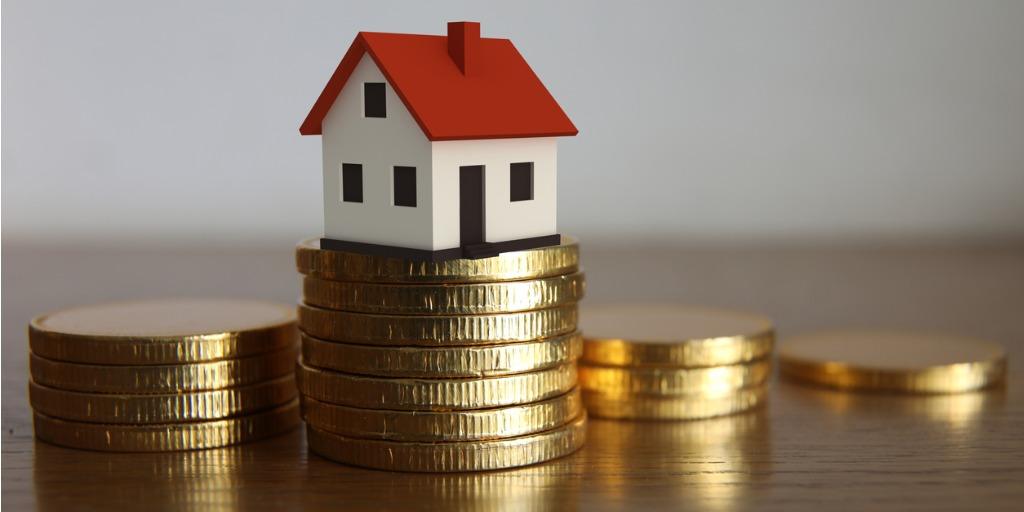
Are you interested in Commercial Property Investment Singapore?
Commercial Property Investment Singapore involves owning non-residential properties like offices and retail spaces to generate income.
Singapore’s business-friendly environment and strategic location make it an attractive market for property investment.
In this blog, we’ll explore the types of commercial properties available, the benefits and risks of investing, and critical considerations for purchasing a commercial property.
Whether you’re a first-time investor or looking to expand your portfolio, this guide will provide valuable insights into the world of commercial property investment in Singapore.
Key Takeaways
| Key Takeaway | Explanation |
|---|---|
| Commercial property investment in Singapore | Commercial Property Investment Singapore involves owning and managing non-residential properties for generating rental income and capital appreciation. It offers higher rental yields and longer lease terms compared to residential properties. The Singapore government provides incentives for property ownership, and the market is known for its stability and business-friendly environment. |
| Types of commercial properties in Singapore | Commercial properties in Singapore can be categorized into industrial, retail, and shophouses. Industrial properties include factories, warehouses, and manufacturing facilities. Retail properties refer to spaces used for selling consumer goods, such as shopping malls and department stores. Shophouses are historic buildings with shops or offices on the ground floor and residential units or offices on the upper floors. Each property type has its unique characteristics and potential for rental income and appreciation. |
| Benefits of investing in commercial properties | Investing in commercial properties offers benefits such as higher rental yields, longer lease terms, and income stability. Commercial properties have higher rental yields than residential properties due to their non-residential use and prime locations. Longer lease terms provide income stability for investors. Additionally, the Singapore government offers incentives like the Central Provident Fund (CPF) Housing Scheme and the Additional Buyer’s Stamp Duty (ABSD) remission. |
| Risks of investing in commercial properties | Investing in commercial properties comes with risks such as changes in market trends, tenant turnover, and property maintenance costs. Commercial properties may take longer to rent out, and tenant turnover can impact rental income. Property maintenance costs are higher due to non-residential use. It is essential to consider these risks and plan accordingly to mitigate potential challenges in commercial property investment. |
| Factors to consider when buying commercial property | When buying commercial property, important factors to consider include the location and accessibility of the property, rental yield potential, suitability for business needs, current state of the market, and costs involved in the purchase. The property’s location should be convenient for tenants, and its size should meet specific business requirements. Additionally, understanding the market conditions and associated costs helps in making informed purchasing decisions. |
| Rental income and rental yield | Rental income is the income generated by leasing out the property to tenants, while rental yield is the return on investment (ROI) from rental income, expressed as a percentage of the property price. Rental yield is a key metric for measuring the profitability of a commercial property investment, and higher rental yields translate to higher ROI for investors. |
| Impact of the COVID-19 pandemic on the commercial market | The COVID-19 pandemic has affected the commercial property market in Singapore, leading to declining demand and falling prices. However, the market is expected to recover in the mid to long-term due to economic growth and increased demand. Investors should monitor market trends and adjust their investment strategy accordingly to adapt to the changing market conditions. |
| Legal considerations when buying commercial property | Buying commercial property involves legal considerations such as zoning laws, environmental regulations, and tenant agreements. Engaging a qualified lawyer and working with a reputable real estate agent helps ensure compliance with regulatory requirements, review legal documents, and negotiate tenant leases. Understanding the legal aspects of commercial property investment is crucial for a smooth and legally compliant transaction. |
| Property tax and its impact on commercial property | Commercial property tax in Singapore is calculated based on the property’s Annual Value and Tax Rate. Property tax can impact rental yield and investment returns, as increased tax can affect rental income and investment calculations. To maximize tax benefits and deductions, investors should research available incentives and consult professionals such as tax accountants or legal advisors to ensure |
Introduction to Commercial Property Investment Singapore
What is Property Valuation?
Property valuation refers to the process of determining the value of a property in the real estate market.
This is done by considering a variety of factors, such as the location of the property, the condition of the property, economic factors, and market trends.
Why is Property Valuation Important in the Singapore Market?
Property valuation is essential to the Singapore property market as it helps buyers and sellers determine a fair property price.
An accurate property valuation can positively affect its sale price, while an overvalued property may not attract potential buyers.
Additionally, property valuation is necessary for property taxes and mortgage loans.
What are the Benefits of Accurate Property Valuation?
Accurate property valuation provides numerous benefits for both buyers and sellers.
For buyers, an accurate valuation report can serve as a guide to identifying suitable properties to invest in.
Obtaining an accurate valuation report is crucial for sellers to avoid underpricing or overpricing their property.
Real property valuation reports can also be a realistic starting point for negotiations between buyers and sellers, ensuring a fair transaction for both parties.
Exploring Different Types of Commercial Properties in Singapore

What are industrial properties?
Industrial properties refer to non-residential manufacturing, warehousing, or assembly properties.
These properties include factories, warehouses, and distribution centers.
Industrial properties tend to be located in industrial estates or business parks, which are zoned for industrial use.
Due to their non-residential use, industrial properties are subject to different regulations and considerations, such as zoning and environmental regulations.
What are retail properties?
Retail properties refer to non-residential properties used for selling consumer goods or services.
These properties include shopping malls, department stores, shops, and restaurants.
Retail properties are located in malls or shopping centers near public transport hubs and MRT stations.
Retail properties offer stable rental income and capital appreciation due to their prime locations and high demand.
What are shophouses?
Shophouses are historical, two- or three-story buildings originally made up of a shop on the ground floor and living quarters on the upper floors.
Nowadays, shophouses are used for commercial or mixed-use purposes, with shops or offices on the ground floor and residential units or offices on the upper floors.
Shophouses offer high rental yields and potential capital appreciation, especially in heritage areas or near tourist attractions.
Benefits and Risks of Investing in Commercial Properties
What are the benefits of investing in commercial properties in Singapore?
Commercial property investment singapore offers several benefits, such as higher rental yields, longer lease terms, and income stability.
Unlike residential properties, commercial properties tend to have longer lease terms, with tenants signing leases of several years instead of months.
Commercial properties also offer higher rental yields than residential properties due to their non-residential use and prime locations.
What are the risks of investing in commercial properties?
Investing in commercial properties also comes with several risks, such as changes in market trends, tenant turnover, and property maintenance costs.
Unlike residential properties, commercial properties may take longer to rent out, especially during an economic downturn or when there is an oversupply of commercial and industrial property.
Tenant turnover may also pose a risk to rental income, as it may take time to find a new tenant or negotiate a new lease.
Property maintenance costs may also be higher for commercial properties due to their non-residential use and the need for specialized maintenance.
What is the rental income and rental yield?
Rental income refers to the revenue generated by leasing the property to tenants.
Rental yield, on the other hand, refers to the return on investment (ROI) from rental income, expressed as a percentage of the property price.
Rental yield is a crucial metric for measuring the profitability of commercial property investment, as higher rental yields translate to higher ROI for the investor.
Factors to Consider When Buying Commercial Property in Singapore

What is the current state of the commercial property market in Singapore?
The commercial property market in Singapore has been affected by the COVID-19 pandemic, with declining demand and falling prices for commercial and industrial property.
However, the market is expected to recover mid-to-long-term, driven by economic growth and increased demand for non-residential property.
Investors should consider the current state of the market when making purchasing decisions, as well as the location, accessibility, and demand for the property.
What are the costs involved in buying commercial property?
The costs involved in buying a commercial property include the purchase price, stamp duty, legal fees, property tax, and renovation costs.
Investors should consider these costs as part of their outlay when buying a commercial property and factor them into their investment calculations to ensure positive cash flow and ROI.
What are the legal considerations when buying commercial property?
Buying a commercial property involves legal considerations such as zoning laws, environmental regulations, and tenant agreements.
Investors should engage a qualified lawyer to review the legal documents and ensure compliance with all regulatory requirements.
They should also work with a reputable real estate agent to negotiate tenant leases and rental agreements.
Understanding the Commercial Property Market in Singapore
What is the current rental market like in Singapore?
The rental market for commercial and industrial property in Singapore is affected by supply and demand and economic fluctuations.
When setting rental rates and investing in commercial property, investors should consider the prevailing rental rates, vacancy rates, and rental yields for similar properties in the exact location.
They should also monitor market trends and adjust rental rates to attract and retain tenants.
What are the factors that affect property prices in Singapore?
Property prices in Singapore are affected by several factors, such as economic growth, supply and demand, government policies, and market sentiment.
Investors should consider these factors when purchasing decisions and anticipate market fluctuations in their investment calculations.
How has the COVID-19 pandemic affected the commercial property market?
The COVID-19 pandemic has affected the commercial property market in Singapore, with declining demand and falling prices for commercial and industrial property.
However, the market is expected to recover mid-to-long-term, driven by economic growth and increased demand for non-residential property.
Investors should monitor market trends and adjust their investment strategy accordingly.
Key Considerations for Purchasing a Commercial Property

Location and Accessibility
The location of your commercial property is a significant consideration when purchasing.
Consider the proximity of your property to transport links, such as bus and train stations.
The property’s location should also be attractive to potential tenants so they feel it is convenient to travel to your office or store.
Access to parking, foot traffic, and local amenities should also be considered.
Rental Yield and Potential Capital Appreciation
It would help if you also considered purchasing a commercial property based on its rental yield potential and capital appreciation.
Rental yield is the income property investors earn through tenant rent, divided by the property’s value.
Capital appreciation is your gain when your property value increases over time.
Location, tenant profile, and market demand determine a commercial property’s rental yield and capital appreciation.
Size and Suitability for Your Business Needs
Apart from location and potential rental yields, you should also consider the size and suitability of the commercial property for your business needs.
As a business owner, you may require specific amenities, workspace to accommodate your employees or customized renovations.
Ensure that the property you purchase can meet your specific requirements to maximize your investment.
The Role of Property Taxes in Commercial Property Investment
Understanding Property Tax Rates and Calculations
The Inland Revenue Authority of Singapore (IRAS) calculates your commercial property tax based on your property’s Annual Value and Tax Rate.
The tax rate for Singapore’s commercial property ranges from 10% to 20% of the Annual Value.
Retail property purchases also attract Additional Buyer Stamp Duty (ABSD) and Buyer Stamp Duty (BSD).
Impact of Property Tax on Rental Yield and Investment Returns
Property taxes do have an impact on your rental yield and investment returns.
When your property tax increases, it can impact your rental income as tenants may seek to renegotiate their lease terms.
You should also factor in your property tax when calculating your investment returns.
Maximizing Tax Benefits and Deductions
To maximize your tax benefits and deductions, you should research and understand the different tax incentives the government offers.
Consider engaging a professional tax accountant or legal advisor to ensure you receive all available tax breaks when purchasing your commercial property.
Industrial Properties: A Lucrative Investment Opportunity in Singapore

Growth Prospects of Singapore’s Industrial Sector
Singapore’s industrial sector has experienced consistent growth in recent years, driven by several key factors such as favorable government policies, rising investment in technology, and an established infrastructure.
This makes investing in industrial space a lucrative opportunity for potential investors.
Types of Industrial Properties and Investing Considerations
There are several types of industrial properties that you can invest in, including factories, warehouses, and business parks.
Industrial properties require extensive capital investments and may require specialized knowledge and experience.
It would help to consider factors such as zoning laws, building codes, and usage restrictions when investing in industrial space.
Impact of Technological Developments on Industrial Property Investment
Technological developments such as automation, artificial intelligence, and robotics have transformed the industrial sector, making it more efficient and productive.
Investing in industrial properties with advanced technology can provide higher rental yields and capital growth prospects.
You should always keep track of technological developments and integrate them into your investment strategy.
Exploring the Different Types of Commercial Properties Available
Retail Properties: Pros and Cons of Investing
Retail properties refer to commercial spaces used for retail activities, such as shopping centers, supermarkets, and stand-alone stores.
Investing in retail properties can provide stable rental income and capital appreciation, but it may also be subject to market fluctuations, consumer behavior, and competition.
Office Spaces: Investment Opportunities and Challenges
Office spaces are commercial properties designed for business operations.
Office properties are usually leased out to corporate tenants, and investing in office properties can provide long-term stable rental income.
However, initial capital investments and potential high vacancy rates are the main challenges when investing in office properties.
Hospitality Properties: A Niche Investment Market
Hospitality properties are commercial properties such as hotels, resorts, and serviced apartments.
Hospitality properties provide steady rental yields, but the initial investment cost, competition, and regulatory requirements can take time and effort.
Hospitality properties also require additional management and operational costs, making them a niche investment opportunity limited to experienced investors.
How to Invest in Commercial Property: Tips and Strategies

Researching and Analysing the Market Trends
Research and analyze trends in the commercial property market before making an investment decision.
It would help if you researched location-specific factors, market demand, rental yield potential, and capital appreciation to make informed investment decisions.
Financing Options and Funding Sources
Various financing options and funding sources are available for commercial properties in Singapore.
Private property loans, government-assisted loans, and crowdfunding platforms are great options for investors with difficulty obtaining funding.
Identify the funding source that best matches your investment strategy and objectives.
Risk Management and Exit Strategies
Commercial property investments carry risks such as fluctuating market demand, changes in property taxes, and rental market saturation.
A proper exit strategy will help you minimize your losses in the event of unforeseen circumstances.
Engage with legal and financial professionals to work out contingency plans and exit strategies to ensure a successful investment.
Understanding the Process of Buying a Commercial Property
Eligibility Criteria for Buying a Commercial Property
Both Singaporean residents and foreigners can purchase commercial properties in Singapore.
However, there are some restrictions for foreigners, such as obtaining approval from the Land Dealings (Approval) Unit of the Singapore Land Authority.
Additionally, foreign investors must consider the Total Debt Servicing Ratio (TDSR) policy, limiting their borrowing to reduce the risk of over-leveraging or defaulting on their loans.
Financing Options for Commercial Property Investment
Financing options for commercial property investment are similar to residential property investment.
However, investors may need to put in a higher down payment when buying commercial properties than residential properties.
Moreover, investors can use their CPF monies to finance the purchase of their first residential property, but this does not extend to commercial properties.
Commercial Property Buying Process in Singapore
Whether you buy a residential or commercial property in Singapore, the process can be lengthy and complicated.
When purchasing a commercial property, investors must file an Option to Purchase (OTP) form and pay a deposit.
Upon signing the Sale and Purchase Agreement, investors must pay the remaining balance to complete the property purchase.
However, investors need to be aware of the Seller’s Stamp Duty (SSD), which imposes a tax on property sold within the first few years of purchasing the property.
Factors to Consider Before Purchasing a Factory in Singapore

Location and Accessibility of the Factory
Before purchasing a factory in Singapore, investors need to consider the location of the factory and its accessibility.
It is crucial to determine how easy it is for goods to be delivered to and from the factory.
Additionally, factors such as proximity to transportation networks and labor supply are vital considerations for industrial property investors.
Type of Industrial Property to Invest In
Investors need to choose the type of industrial property to invest in carefully.
Industrial properties in Singapore can range from warehouses, factories, and business parks to specialized properties such as data centers.
Each property type will have different risks and rewards, and investors need to conduct their research to determine which type of industrial property suits their investment portfolio.
Zoning Regulations and Restrictions to Be Aware of
Investors need to know the zoning regulations and restrictions before purchasing the property.
For instance, food and beverage (F&B) establishments require different licenses and permits than other industrial properties.
Investors must obtain the necessary permits and licenses to operate their businesses within the purchased property.
Exploring the Pros and Cons of Different Commercial Property Types
Retail Spaces
Retail spaces are popular investment options among commercial property investors in Singapore.
They are easily accessible, and the rental yield for retail spaces tends to be higher compared to other commercial properties.
However, investors need to be aware of the competition from other retail spaces in the area and the seasonality of the business.
Industrial Properties
Industrial properties, including factories and warehouses, are suitable for investors looking for stable, long-term rental income.
While the rental yield on industrial properties may be lower than retail spaces, rental contract tenure is usually longer.
Industrial properties are ideal investments for investors looking to establish permanent tenants.
Office Spaces
Office spaces are another popular investment option for commercial property investors in Singapore.
They are suitable for investors looking for stable, long-term rental income.
Office spaces tend to have higher rental yields compared to industrial properties.
However, investors must be aware of the oversupply of office spaces in the market and its impact on the property’s value.
The Importance of Research and Due Diligence in Commercial Property Investment

Conducting Market Research
Conducting market research is critical before investing in commercial properties.
Investors must know current market trends, including supply, demand, and rental yield.
Investors need to evaluate the economic indicators, such as industrial production and GDP, to assess the economy’s overall health and its impact on the property market.
Due Diligence in Property Inspection and Evaluation
Investors need to thoroughly inspect and evaluate the property before purchasing it.
It includes examining the physical condition of the property, such as its structural design and shape, building facilities, and systems.
Investors need to consider engaging professional inspectors to assess the property and avoid investing in properties with poor-quality designs or construction.
Seeking Legal and Professional Advice
Investors need to seek professional advice, including from legal and accounting professionals, before purchasing commercial properties.
It includes evaluating their financial status, tax obligations, legal rights, and entitlements.
Investors must understand Singapore’s legal and regulatory framework and ensure their investments comply with local laws and regulations.
How to Get Started: Contacting Professionals and Seeking Expert Advice
Engaging a Real Estate Agent or Broker
Engaging a real estate agent or broker is critical when investing in commercial properties.
Skilled agents can provide market insights and help investors find properties that meet their investment needs.
Agents can also act as intermediaries between buyers and sellers, ensuring a smooth transaction process.
Working with a Lawyer and Accountant
Investors need to engage a lawyer and accountant before investing in commercial properties.
Legal professionals can help investors navigate the legal and regulatory framework surrounding property acquisition.
Accounting professionals can provide tax advice and assist investors in managing their financial obligations associated with property purchases.
Seeking Advice from Property Investment Experts
Investors must seek advice from property investment experts before investing in commercial properties.
Experts can provide valuable insights into market trends, identify profitable investment opportunities, and help investors develop a diversified investment portfolio.
Investors need advice from experienced professionals specializing in commercial real estate investment.
Conclusion
In conclusion, commercial property investment in Singapore offers attractive opportunities for generating income and capital appreciation.
Singapore’s business-friendly environment, strategic location, and government incentives make it a safe and stable market for property investment.
The commercial properties available include industrial, retail, and shophouses, each with benefits and considerations.
Commercial property investments provide higher rental yields, longer lease terms, and income stability than residential properties.
However, it also comes with risks like market fluctuations, tenant turnover, and property maintenance costs.
It is essential to carefully analyze market trends, consider location and accessibility, and assess rental yields and potential capital appreciation before making an investment decision.
Frequently Asked Questions
Can Singaporeans buy a commercial property?
Yes, Singaporeans can purchase commercial properties like retail shops, offices, and factories.
What are the types of commercial properties available for investment?
Commercial properties include retail shops, offices, factories, warehouses, hotels, and shopping centers.
It depends on your investment strategy and budget and which type of property you can invest in.
What are the cons of investing in commercial property?
Some cons of investing in commercial property include higher upfront costs, more extended vacancies between tenants, higher maintenance expenses, and fluctuating demand and rental rates.
Can I purchase commercial property as an individual?
Yes, you can buy commercial property as an individual or as part of a company.
However, you must know the cooling measures and ABSD for commercial properties.
What is ABSD for commercial properties?
ABSD stands for Additional Buyer’s Stamp Duty, a tax on individuals or entities purchasing additional properties.
For commercial properties, the ABSD rate is 15%.
What is the cooling measure for commercial properties?
The cooling measure for commercial properties includes loan-to-value (LTV) limits, increased cash down payments, and restrictions on using CPF funds.
How do I purchase the commercial property?
You can purchase the commercial property through a property agent or directly from the seller.
It is recommended to engage a lawyer to handle the legal aspects of the transaction.
How can I get a commercial property loan?
You can ask banks or financial institutions about commercial property loans.
The loan amount and interest rate will depend on your property’s value and financial standing.
Can I use my CPF to purchase a commercial property?
Yes, you can use your CPF savings to finance the purchase of a commercial property, subject to specific rules and regulations.




















